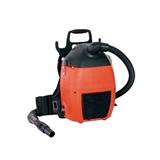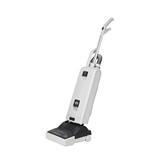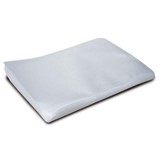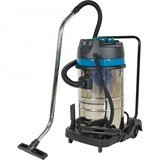Explore commercial vacuum sealer prices & buying tips for Australian businesses. Get expert advice on selecting the best model for your needs.
Key Takeaways:
- Price Range: Commercial vacuum sealers in Australia range from $200 to $5,000 depending on the type and features, with external sealers starting at $200 and high-end chamber sealers reaching up to $5,000+.
- Types of Machines: External vacuum sealers are ideal for small businesses, while chamber vacuum sealers are better suited for high-volume commercial operations.
- Maintenance: Regular cleaning, seal replacement, and vacuum pump maintenance are essential for extending the lifespan of your sealer.
- Financing Options: Leasing and equipment financing are available to help spread the cost of high-end machines.
Introduction
In Australia, commercial vacuum sealers are essential tools for food safety, storage, and packaging. They are widely used across industries such as food production, hospitality, and e-commerce, helping businesses maintain the freshness and quality of products for extended periods. This buying guide will provide all the information you need to choose the best vacuum sealer for your Australian business, including pricing, types of machines, maintenance, and financing options.
Types of Commercial Vacuum Sealers
Understanding the different types of vacuum sealers available will help you determine which is best for your needs. The two main categories are external vacuum sealers and chamber vacuum sealers.
1. External Vacuum Sealers
- Best For: Small to medium businesses, cafes, restaurants, and home-based businesses.
- How It Works: The product is placed in a bag, and the machine removes the air before sealing it with heat.
- Advantages: Affordable, portable, and user-friendly.
- Price Range: $200 - $2,500.
- Key Features:
- Works well for dry foods such as meats, cheeses, and dry goods.
- Easy to store and operate, making it suitable for lower volume operations.
- Often comes with built-in storage for bags and a small footprint.
2. Chamber Vacuum Sealers
- Best For: Larger-scale operations such as food production plants, catering businesses, and high-volume kitchens.
- How It Works: The vacuum bag is placed inside the chamber, and the entire chamber is evacuated of air before sealing the bag.
- Advantages: More powerful, faster, and can seal liquids.
- Price Range: $2,500 - $5,000 or more.
- Key Features:
- Ideal for sealing liquids such as soups, sauces, and marinades.
- Great for high-volume packaging.
- Built for durability, making them suited for larger businesses.
Commercial Vacuum Sealer Prices in Australia
The cost of a vacuum sealer depends largely on its type, features, and intended use. Here’s a more detailed breakdown:
Entry-Level Models (External Sealers)
- Price Range: $200 - $1,000.
- Recommended For: Small food businesses or home-based operations.
- Key Features: Basic functionality, easy to use, compact design.
Mid-Range Models (Chamber Sealers & Advanced External Sealers)
- Price Range: $1,000 - $3,000.
- Recommended For: Medium-sized businesses like catering companies or small food producers.
- Key Features: Faster sealing, better durability, more control over the sealing process.
High-End Models (Heavy Duty Chamber Sealers)
- Price Range: $3,000 - $5,000+.
- Recommended For: Large businesses, food processing plants, and high-volume operations.
- Key Features: High sealing speed, large chamber capacity, designed for continuous use.
How to Operate a Commercial Vacuum Sealer
Operating a commercial vacuum sealer is straightforward, but it's important to follow best practices to achieve optimal results.
Step-by-Step Process:
- Prepare the Product: Place the product in a vacuum bag, making sure there is enough space around the product for the air to be evacuated.
- Load the Bag: Place the open end of the bag into the vacuum chamber or the external sealing area.
- Vacuum and Seal: The machine will remove the air and heat-seal the bag.
- Inspect the Seal: Once the sealing process is complete, check for any defects. A good seal should be tight, without air bubbles.
Advanced Features to Look For:
- Double Seal Function: For extra secure seals, which can be essential for products like meats.
- Wet Food Settings: Some commercial sealers have settings specifically designed for wet or moist food packaging.
- Adjustable Sealing Time: Ensures more control over the sealing process, especially for delicate or thicker items.
Maintenance and Care of Commercial Vacuum Sealers
To ensure your commercial vacuum sealer operates efficiently for years, regular maintenance is essential.
Routine Maintenance:
- Cleaning: Clean the machine regularly, especially around the sealing bars and vacuum chambers. Any food particles left inside could affect performance.
- Seal and Gasket Replacement: Seals and gaskets wear over time, leading to weak seals. Regularly inspect these parts and replace them as needed.
- Vacuum Pump Oil (for piston-driven models): Regularly check and replace the oil in the vacuum pump to maintain efficiency.
- Check for Leaks: Ensure the chamber is free of leaks. If air leaks during sealing, the vacuum will not be effective.
Common Repairs:
- Replacing the Seal Bar: Over time, the seal bar may wear out and need replacing, particularly if you're sealing high-volume packages.
- Maintaining the Pump: If the pump becomes less efficient, have it serviced to maintain the machine's performance.
Compliance and Certification for Vacuum Sealers in Australia
Australian businesses must comply with food safety and equipment standards. Before purchasing a commercial vacuum sealer, ensure it meets the necessary certifications.
- Food Safety: Food Standards Australia New Zealand (FSANZ) sets regulations for food safety. Make sure your vacuum sealer complies with FSANZ regulations for packaging food.
- Electrical Safety: All vacuum sealers should have the necessary AS/NZS electrical compliance certifications to ensure they are safe for use in Australian commercial environments.
- Warranty and Support: Ensure the machine comes with a warranty that covers parts and servicing. A local supplier is ideal for easy access to repairs and replacement parts.
Financing Your Commercial Vacuum Sealer
A high-quality commercial vacuum sealer can be a significant upfront investment, but several financing options are available to help businesses manage the cost:
- Leasing: Leasing options let you spread out the cost over time. Many Australian vendors offer equipment leasing, which could be an attractive option for cash flow management.
- Equipment Financing: Business loans tailored to equipment purchases are available from Australian financial institutions.
- Buy Now, Pay Later: Some suppliers offer buy now, pay later schemes, which can help businesses manage costs on high-end equipment.
Common Questions About Commercial Vacuum Sealers
1. What is the difference between external and chamber vacuum sealers?
- Answer: External sealers are better suited for smaller batches and dry foods, while chamber sealers are faster, more reliable, and suitable for high-volume and wet food packaging.
2. Can vacuum sealers handle liquids?
- Answer: Yes, some high-end vacuum sealers have wet settings or are designed to handle liquid-rich foods such as soups and marinades, especially chamber sealers.
3. What is the maintenance schedule for a vacuum sealer?
- Answer: Perform regular cleanings after each use, replace seals as needed (typically every 6–12 months), and check for leaks regularly. Vacuum pump oil should be replaced annually if applicable.
4. How long do vacuum sealers last?
- Answer: With proper maintenance, commercial vacuum sealers can last between 5 to 10 years. Machines that are used heavily may require more frequent servicing.
5. Are warranties available?
- Answer: Yes, most reputable brands offer warranties. Check the length and coverage details when purchasing; typically, warranties last 1–5 years.
Conclusion
Choosing the right commercial vacuum sealer in Australia depends on the size of your operation, the types of foods you need to package, and your budget. Whether you're a small café or a large food production facility, this guide provides the details you need to make an informed decision. Be sure to assess your business’s needs, consider the maintenance requirements, and explore financing options to get the best value for your investment.
By considering all factors—including machine type, pricing, maintenance, compliance, and financing—you’ll be well-equipped to choose the right vacuum sealer for your Australian business.










